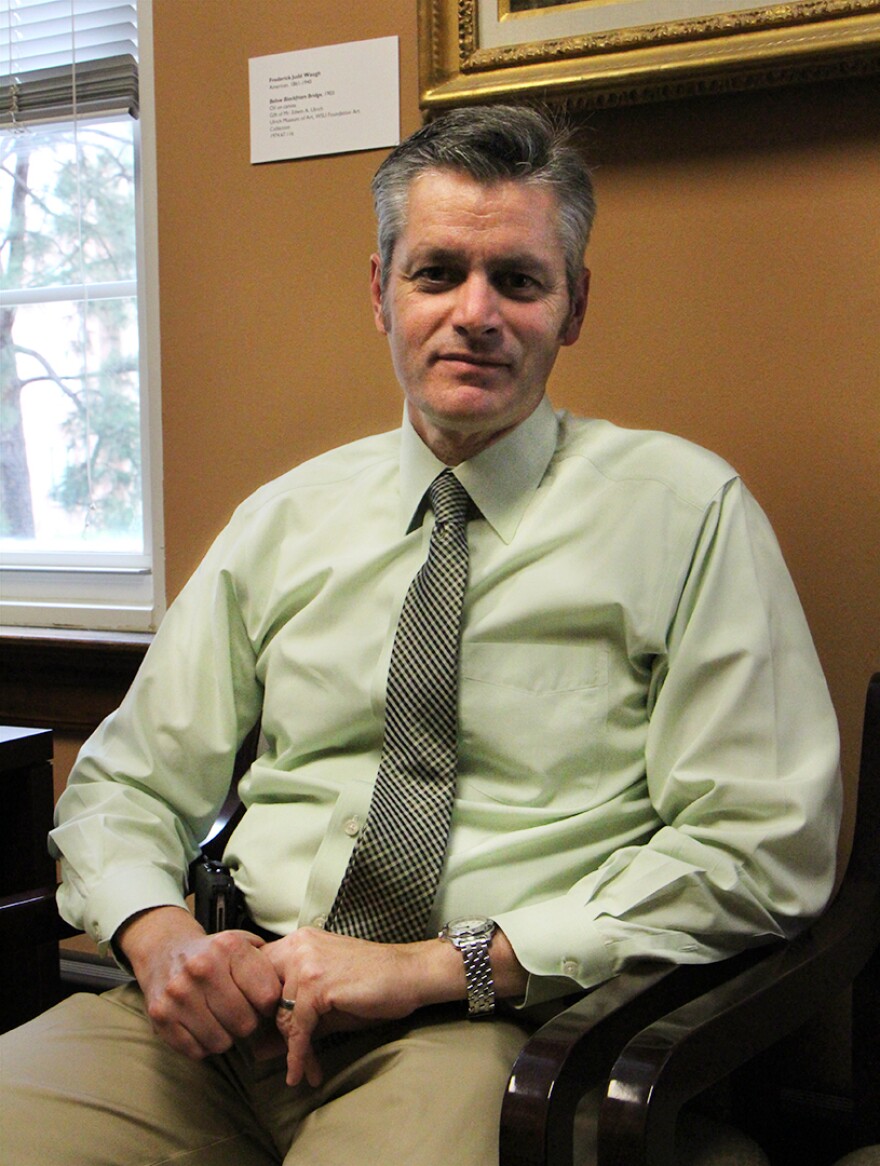Originally aired 9-12-14
Next week, the Kansas Board of Regents will examine the results of general education assessments, which evaluate communication, critical thinking and problem solving skills of current and former students throughout its system. This is the first time that state-supported universities, community colleges and technical schools have been required to provide these numbers to the board. This data has the potential to affect new state funding for these institutions.
Students in an English class at Wichita State University—mostly first-year freshman—pull out journals of all shapes and sizes. Some are typical blue-lined notebooks, others are sketchbooks with cream-colored paper. The students in the class critique each other's homework from the past week: journal entries about their childhood, which required lots of descriptors.
This is English 101. Like English 102, Math 111 and Communications 111, it’s one of the required general education courses for Wichita State University undergraduates. These classes typically cause students to roll their eyes, but Maria Blumhorst, who teaches this class, says she’s seen these classes inspire students.
“I've even had some of them come up to me and say, ‘you know, the journal writing that I’ve been doing gave me an idea for a topic in another course,’” Blumhorst says. “It was either a speech or a paper.”
Wichita State expects its undergraduates to learn the foundations of critical thinking and problem solving through its general education courses, which include the humanities, fine arts, behavioral sciences and mathematics. While students might take these electives lightly, the university does not.

Darren Defrain is an associate English professor and director of the writing program at Wichita State University. He says students often look at general education courses as nothing but a grade, not realizing their relevance to their chosen field.
“I think they have this idea they can just go to class, take some notes, [and ask], ‘is this going to be on the test?’” Defrain says. “One of the things we find that's crucially important to a good bachelor’s degree is to be able to engage in your field, to engage in dialogues within your field. You can’t do that by being passive, you have to be active. And that's where critical thinking skills are applied.”v
To measure how these general education courses affect critical thinking, problem solving and communication skills, Wichita State University tests 100 freshman in the fall and 100 seniors in the spring.
Richard Muma is associate vice president of academic affairs; he describes the standardized test the university uses.
“It’s a 90-minute computerized exam where students are given prompts—a set of data, for instance, about a particular issue,” Muma says. “They’d be requested to evaluate that data and then write about their conclusions. They’re measured in several different ways: how to problem solve through an issue, apply analytical reasoning and concepts, and writing evaluation.”
In 2010 the Kansas Board of Regents started a 10-year strategic plan called Foresight 2020. It includes a number of targets for all of the schools it governs, including the University of Kansas, Kansas State and Wichita State.

If schools want new funding on top of what they’re already given, they must meet the performance-based goals agreed upon by themselves and the board of regents. These goals can include the number of degrees awarded each year, diversity in the student body, rankings for research efforts and retention rates. It can also include these newly reported general education results. The ways for measuring these results aren’t perfect, however, according to Kansas Board of Regents member Robba Moran.
“Let's say you have a freshman class of 3,000 students. Four years later, or six years later, when you test the graduating seniors, it's not the same group of students,” Moran says. “You have students who have transferred somewhere else, dropped out and then people who transferred in.”
Moran says a total switch to performance-based funding for Board of Regents institutions has been discussed in the past, but adds that board members aren’t sure how this new data will factor into that discussion.

“I know the legislature has looked at performance based funding, many states are looking at performance based funding,” she says. “If [student assessment outcomes] were ever to become part of that, we need to start exploring it now, and figure out where we are and what we think needs to be done, if anything, in this area.”
The Kansas Board of Regents will get their first look at this data during its monthly meetings next week. They’ll also be looking over school budgets later this year.
WSU's 2013 Foresight 2020 report
KU's 2013 Foresight 2020 report
Follow Sean Sandefur on Twitter, @SeanSandefur

